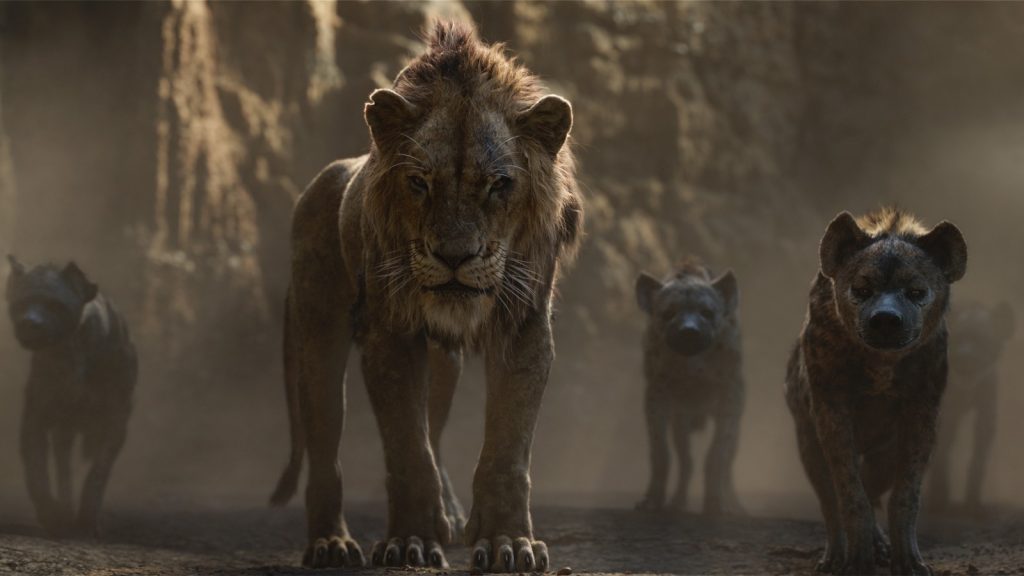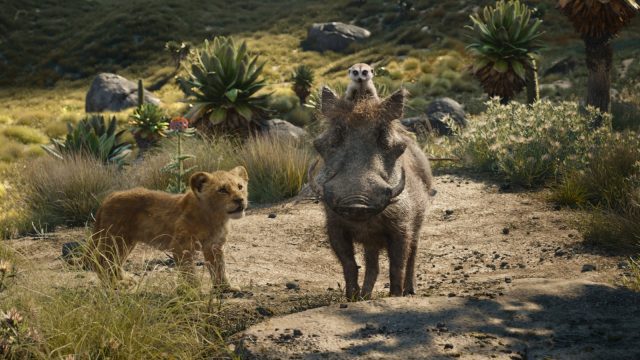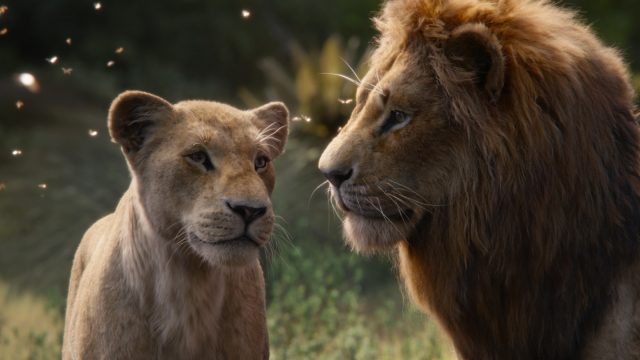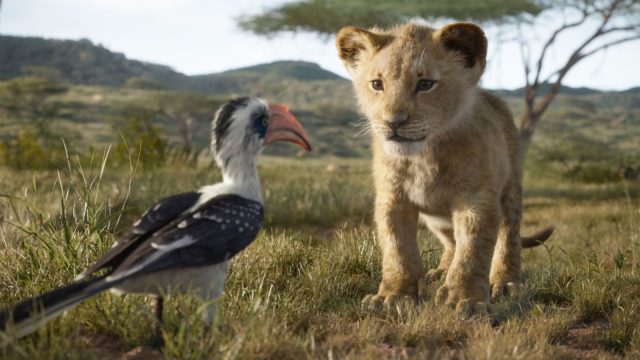Sony launches the WF-1000XM6 in South Africa with upgraded noise cancelling, better call clarity and premium sound. Pricing starts at R7,999.
The Lion King review: a beautiful remake of a much better movie

Dumbo, Aladdin, and now The Lion King. Disney continues its computer-generated roadmap of remaking almost ever single childhood animation loved by Millennials.
It would be a strange plan for any other company, but the idea of The Lion King reimagined using current cutting-edge visual technologies, a party of present pop culture pioneers, and directed by Jon Favreau, does have that “shut up and take my money” factor.
But in practice, this theory leaves a lot to be desired. And as I sat through the 2019 reimagination, I wished that it was 1994 all over again.
The Lion King is so damn beautiful. It’s remarkable, and rather ironic, just how well technology can reproduce the natural world. And while The Lion King is still an animated movie, it’s so meticulous in design that it’s difficult to tell that the animals aren’t real. The Lion King surely is one of the most beautifully and uncannily realistic CGI movies we’ve ever seen on the big screen.
As I sat for two hours through the 2019 reimagination, I wished that it was 1994 all over again
This goes beyond the aesthetics too.
The movement of these animals, from the springing impala to the plodding elephant, and the twitchy meerkat that is Timon and the skittish Zazu, is almost lifelike. Light passes through grass, while those blades cast shadows on and over unsettled earth kicked up by herds of impala. You can almost taste the smoke and feel the fire’s embers on your skin. The world feels weighty. The digital characters are tangible. And the environment created in this movie is one beautiful love letter to Africa’s varied landscapes.

But this isn’t a documentary. The Lion King isn’t a true story about the life of a pride of lions in South Africa, or Tanzania, or Botswana. Instead, it’s a fictional bildungsroman of a young lion that endures heartache, falls into depression, and ultimately runs away literally, and figuratively, from the issues in his life. Eventually, he overcomes these as he conquers both Scar — a representation of his emotional oppression and failure — and his own doubts about himself.
But you don’t see, or at least feel the enormity of that arc with this version of Simba.
Donald Glover imbues the adolescent lion with vitality, impishness and a carefree attitude, but seeing a near-lifelike giant cat with flaming mane crack jokes or monologue (like Hamlet) about his father’s death is, well, weird.
Animal movement, from the springing impala to the plodding elephant, is almost lifelike
Cartoonish animation works because the animators can create anthropomorphic characters as, or even more, expressive as humans in a world this isn’t presented as lifelike. This gives them free reign to express human-like emotion through their faces, their eyes, their cheeks. You’re immediately limited when the world is bound by the cling-film of realism.
Real lions can’t cry like humans.

This disconnect is also made more apparent by the voice acting.
Voiced by JD McCrary, the 12-year-old gives cub Simba an annoying, dislikeable degree of arrogance. Yes, the original Simba was a brat, but he had a degree of innocence (again, perhaps further enhanced by those bright, animated eyes). I felt bad for Simba 24 years ago. I kind of wish Simba was trampled by wildebeest this time around.
Beyonce Knowles, as the adolescent Nala, gifts the lioness her beautiful singing voice, harmonising almost seamlessly with Donald Glover’s older Simba during a “Can You Feel The Love” duet (arguably the high point of the movie). But when tasked with voicing the defiant, headstrong lioness, her delivery is flat and wooden, lacking feeling or substance.
James Earl Jones returns as Mufasa too, but you’ll rather wish he didn’t. In 1994, the character brought to life had an intimidating exterior but a warm gooey centre. But in this 2019 depiction, you’d be forgiven for thinking JEJ was voicing an aloof Greek god instead. There’s no better example than when Mufasa reprimands Simba for visiting the shadows in the first act.
Oh, and Rafiki? Well, John Kani’s version is more muted, which is a huge shame. You almost forget the South African actor is in this movie.

But, hey, I did like some portrayals better this time around.
Scar is one. Voiced by Chiwetel Ejiofor, this version of the best lion is more subtly evil, overflowing with bile and hate, rather than the obvious, over-the-top villain in the 1994 flick. His line delivery lingers, almost growling each remark to the various characters in the flick. And because Scar is visibly malnourished when compared to the near perfect specimens of Mufasa and Simba, his anguish and pain is more understandable.
Timon and Pumba too, played by Billy Eichner and Seth Rogan respectively, perfectly captured the meerkat and warthog’s odd but familial relationship. Their dialogue at times, strangely enough for a Disney movie, also pokes fun at the movie itself. While some jokes have been updated to add some degree of 2019 relatability to newer viewers. Beyond that, it’s the same Timon and Pumba lines and moments you loved from 24 years ago. But again, wisecracking works in cartoons, not in something that resembles a David Attenborough special.
But that’s really the thing. Why would anyone want or need to remake an almost perfect movie?
Watching the 2019 Lion King will make you wish you rather watched the 1994 version instead. You’ll be able to deliver it line by line depending on how many times you’ve seen the first movie. Hell, it’s impossible to spoil it. And perhaps it’s because of this almost CTRL-C portrayal that this movie loses its heart.
Watching the Lion King 2019 will make you wish you rather watched the 1994 version instead
I’d have loved a slightly different plot line. What if Mufasa didn’t die in the stampede? What if it were the hyenas that killed the king?
I would’ve taken a different perspective from another animal too. A tale narrated by Zazu (voiced by John Oliver), or a deeper look at Nala and the remaining lionesses’ anguish and struggles after both Simba and Mufasa depart them.
So, same plot. Same characters. Almost exactly the same lines and songs. And similar plot. Just, more pixels. So why watch it?
I have to reiterate: it’s beautiful. You probably won’t see another live-action CGI movie that looks anything like this for a good while. But, while the technological advancements should be applauded, and regarded as brilliant, visuals and technology does age. The heart and soul of a movie doesn’t.
24 years later, and the 1994 Lion King is still as fresh and relevant as ever. Will the 2019 edition enjoy a similar legacy?
Ironically, after all those years of laughing at my parents for using this line, the 2019 Lion King is the perfect case of “they just don’t make things like they used to”.
All images: Disney Enterprises


